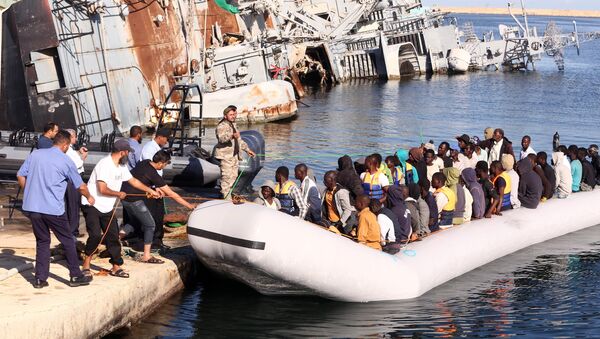In March 2016, EU leaders and Turkey have agreed on a comprehensive plan that opened a legal route to the European Union for Syrian refugees while reducing irregular migration. The plan finalized the one-for-one principle, according to which all new irregular migrants crossing from Turkey into Greek islands were to be returned to Turkey, and for every Syrian returned to Turkey from Greek islands, another Syrian was to be resettled from Turkey to the bloc.
"Next spring, Europe will face a new heavy influx of migrants through the central Mediterranean. The reasons why these people undergo these risky voyages are way different from those leading Syrian refugees to cross the Aegean Sea. There is no doubt that unless the essence of the EU-Turkey deal is replicated in the central Mediterranean, Europe will face another crisis," Muscat said during his speech at the European Parliament in Strasbourg.
The European Union has been struggling to manage a massive refugee crisis which escalated in 2015 with hundreds of thousands of people form the Middle East and North Africa seeking asylum in the EU member states. The EU border agency Frontex detected over 1.83 million illegal border crossings in 2015, in contrast to some 283,000 in 2014.
Preliminary Frontex data for 2016 suggests that 182,500 people crossed the EU border, with the major drop attributed to the EU-Turkey deal on migrants. The figure contrasts sharply with the spike in migrant deaths. According to the International Organization for Migration, over 5,000 migrants died attempting to cross the Mediterranean Sea in 2016, which makes it the most deadly year on record for the Mediterranean migration route.



